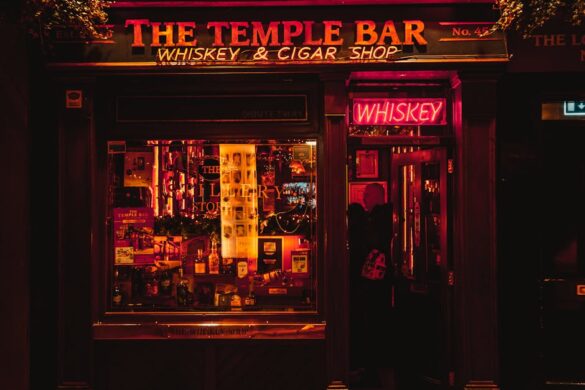Eco-Friendly Beer Packaging Trends: The Future of Sustainable Brewing
As the global narrative shifts towards sustainability, beer brewing isn’t left behind. The craft beer industry, known for its creativity and innovation, is stepping up its game with eco-friendly beer packaging trends that reflect a commitment to the environment. So, what exactly are these trends, and how are they shaping the future of sustainable brewing? Buckle up, beer lovers; we’re about to dive deep into the world of eco-friendly packaging solutions in the brewing industry!
The Growing Importance of Sustainable Brewing
The issue is clear: climate change and environmental degradation affect us all. As consumers become increasingly aware of their choices’ environmental impact, they actively seek products that align with their values. The brewing industry, therefore, is facing a unique challenge and opportunity. Eco-friendly beer packaging trends represent a clear response to consumer demand for sustainability, serving as an avenue for breweries to not only enhance their brand image but also contribute positively to the planet.
Innovative Packaging Solutions in Brewing
1. Recyclable Materials
Many breweries are adopting recyclable materials such as aluminum, glass, and cardboard for packaging. While beer cans made from aluminum are already a favorite choice because they’re lightweight and recyclable, breweries are emphasizing the importance of using aluminum sourced from recycled materials. This reduces energy consumption and pollution associated with producing new aluminum, making it a win-win for sustainability.
2. Biodegradable Bottles and Labels
Innovations in biodegradable materials are paving the way for sustainable packaging. Some entrepreneurs are experimenting with materials made from plant-based resources, like corn starch or sugarcane, to produce bottles that break down naturally. Even labels are getting in on the action, with breweries employing water-soluble and compostable label designs to ensure that every part of their packaging is eco-friendly.
3. Kegs and Reusable Containers
Innovation isn’t limited to bottles and cans. Many breweries are shifting towards returnable keg systems, which significantly reduce waste. By encouraging customers to return kegs and containers for reuse, breweries can drastically decrease the single-use packaging problem while saving costs in the long run. This circular economy model is gaining traction, showing that sustainability can be convenient for consumers, too.
4. Minimalist Packaging Design
Simplicity is sometimes the most effective policy. Many craft breweries are adopting minimalist packaging designs that not only reduce material usage but are visually appealing and functional. By focusing on the essentials, these breweries showcase the beer itself rather than elaborate packaging, reinforcing the brewery’s commitment to sustainability. With less material to create and transport, they ultimately lower their carbon footprint.
5. Edible Packaging
One of the most exciting innovations in eco-friendly beer packaging trends is the idea of edible packaging. Some companies are experimenting with coatings made from seaweed or corn that consumers can eat along with their drink. While still in the experimental phase, edible packaging holds promise for completely eliminating waste.
6. Smart Packaging and Technology
Moreover, technological advancements are helping breweries optimize their packaging processes. Smart packaging equipped with QR codes can inform consumers about recycling processes, ingredient sourcing, and sustainability practices, encouraging them to make informed choices. This transparency builds loyalty and trust between consumers and the brand.
Frequently Asked Questions (FAQs)
Q1: Why is eco-friendly beer packaging important?
Eco-friendly beer packaging is crucial as it reduces the environmental impact of production and disposal, tapping into consumer demand for sustainable practices. It helps breweries minimize their carbon footprint and contribute positively to environmental conservation.
Q2: How are breweries transitioning to eco-friendly packaging?
Breweries are transitioning by adopting recyclable materials, implementing reusable container systems, and investing in biodegradable technologies and minimalistic designs. Many also focus on consumer education regarding recycling and sustainability.
Q3: Is alcoholic beverage packaging more challenging to make eco-friendly?
Yes, creating durable and sustainable packaging that preserves the quality of beverages presents a unique challenge. However, advancements in material science and design are helping breweries meet these challenges head-on.
Q4: Can consumers affect the future of beer packaging?
Absolutely! Consumer preferences play a significant role in influencing brewery practices. As more people demand sustainable options, breweries will increasingly focus on eco-friendly beer packaging trends to meet these demands.
Q5: Are there any regulations regarding sustainable packaging in the beer industry?
While there aren’t universal regulations regarding packaging sustainability in the beer industry, many local and international organizations are pushing for greener practices. Breweries are encouraged to adopt eco-friendly practices to comply with growing consumer expectations and potential future regulations.
Conclusion
Eco-friendly beer packaging trends are at the forefront of innovation in the beer industry, offering breweries a path toward sustainable practices while appealing to environmentally conscious consumers. The future of sustainable brewing doesn’t just lie in what’s inside the bottle but also in how that bottle is made and delivered.
As these trends continue to evolve, we can anticipate more exciting developments that will reshape the landscape of brewing. So next time you enjoy a cold brew, think about its packaging—there’s a good chance that it’s part of a larger movement in the brewing industry towards a more sustainable future. Cheers to that!

